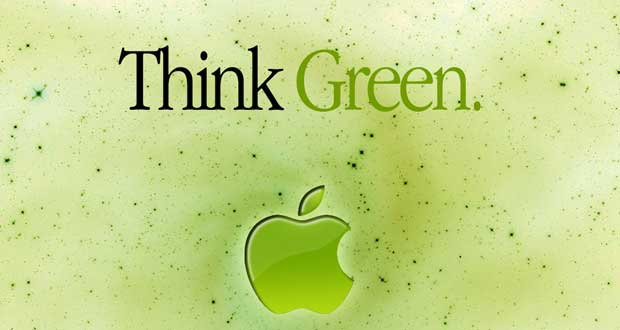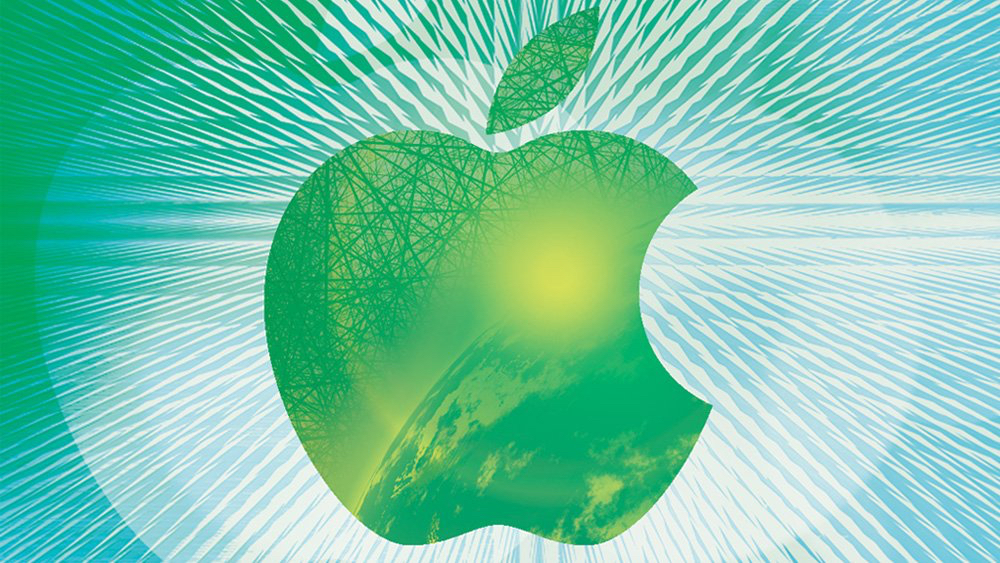Apple has announced a “significant commitment” by major supplier Lens Technology to run its Apple operations on entirely renewable energy. This unprecedented commitment, combined with zero waste compliance from all final assembly sites, furthers Apple’s efforts to help manufacturers lower their carbon footprint and reduce waste in China, helping to advance China’s transition to a new green economy, according to Lisa Jackson, Apple’s vice president of Environment, Policy and Social Initiatives.

Lens Technology has committed to power all of its glass production for Apple with 100% renewable energy by the end of 2018, as part of Apple’s supply chain clean energy program announced last year. Lens is the first supplier to make a clean energy commitment for all of its Apple production, and will meet its goal through an unprecedented power purchase agreement with local wind projects, says Jackson.
Lens Technology engages in the research and development, production, and sale of protective glass touch panels. The company offers protective window glass, touch screen monomer, touch screen module, camera module, fingerprint module, and camera related products, as well as buttons, ceramics, metal parts, and new materials. Its products are used for applications in mobile phones, tablet personal computers, televisions, digital cameras, players, GPS navigation systems, automotive instrumentation, smart homes, medical equipment, and other areas. The company was founded in 2003 and is based in Changsha, China.
Apple is working with suppliers to help transform the environmental landscape in China, and is proud to announce all 14 of its final assembly sites in China are now compliant with UL’s Zero Waste to Landfill validation. The UL standard certifies all of their manufacturing waste is reused, recycled, composted, or, when necessary, converted into energy. Since the program began in January 2015, the sites have diverted more than 140,000 metric tons of waste from landfills.
“We want to show the world that you can manufacture responsibly and we’re working alongside our suppliers to help them lower their environmental impact in China,” says Jackson. “We congratulate Lens for their bold step, and hope by sharing the lessons we’ve learned in our transition to renewable energy, our suppliers will continue to access clean power projects, moving China closer to its green manufacturing goals.”
Lens’ manufacturing with Apple currently includes two facilities in Changsha, Hunan province. Wind energy will cover 100% of the energy consumed producing Apple products at Lens facilities by 2018, avoiding nearly 450,000 metric tons of carbon dioxide each year, equivalent to the energy use in 380,000 Chinese homes.
“Our power purchase agreement is the first of its kind in southern China and we hope it will serve as an example for other companies looking to transition to cleaner, more economical sources of power,” says Lens CEO Zhou Qunfei. “We’re pleased to be the first supplier to commit to covering all of our Apple production with renewable energy, and proud to source from local Hunan wind farms to power our facilities in Changsha.”
Through its clean energy program, Apple will partner with suppliers in China to install more than 2 gigawatts of new clean energy in the coming years, avoiding over 20 million metric tons of greenhouse gas pollution in the country between now and 2020. Foxconn committed in October to construct 400 megawatts of solar, starting in Henan province, by 2018. The manufacturer is now well on its way to constructing the first 80 megawatts of that commitment.
Earlier this year, Foxconn final assembly sites at Guanlan and Taiyuan were the first in China to receive UL’s Zero Waste to Landfill validation. With the recent addition of 12 manufacturing sites, all of Apple’s final assembly production in China is now zero waste compliant.

The UL ECVP 2799 “Zero-Waste-to-Landfill” sets out a comprehensive, rigorously-defined and independently-verified set of metrics and processes that a variety of leading companies are using to dramatically cut down the volume of solid waste being sent to landfills.
“We applaud innovative companies, like Apple, that are leading by actively reducing the environmental impact of manufacturing operations,” asides UL president and CEO Keith Williams. “Achieving zero waste is an extensive effort that requires close coordination across all facets of a company’s operations, especially when the commitment is global.”
Apple says that today it’s powering 100% of its operations in China and the US, and more than 93% of its worldwide operations, with renewable energy. You can learn more about Apple’s environmental efforts click here.
Gazelle Certified MacBooks – Perfect for back to school, get ’em now!
